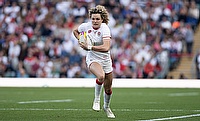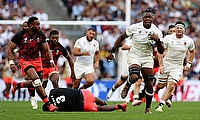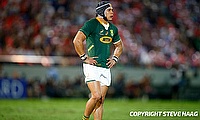RFU vows to address burnout concerns of players
New Rugby Football Union chief executive Steve Brown insisted that addressing player burnouts will be among their top agendas as the injury list has been on the rise.
England internationals Billy Vunipola, Ben Youngs and Joe Marler stated that strike could be a possibility ahead of the proposed 11-month season with the global calendar kicking-off from 2020.
Vunipola, who recently sustained a knee injury after recently recovering from a shoulder problem said he would even opt for a pay cut in surviving the demands of the modern game.
Brown hopes an agreement will be reached by the end of the season and views player welfare as the biggest challenge of his Twickenham reign, which began three weeks ago.
"We have no game if we have no players. Players have always been central to the RFU, but we need to bring it to the fore much more now," Brown said.
"The players have a voice and we need to listen to them. They are saying what they think and what they feel about the current environment they're playing in. We need to take heed of that.
"Listening to the players, I can see two things emerging. It's not just the physical concerns, but also the mental demands and psychological pressures they are under.
"We need to understand all that and understand it properly. Facts, data, knowledge and listening are the key here.
"If it (strike action threat) is genuine, then it's a concern. We shouldn't be in that situation in this country so we have to find a solution for it. It's a concern and we can't ignore it.
"We need to listen to what they're saying, but what is agreed has ramifications for the whole structure of the game as well."
Aviva Premiership season run from September to June every year while the summer tour internationals are usually played in July, making it an unpalatable 11-month season for international players.
Even though windows for resting of players has been planned, there are concerns that the players will be pushed to breaking point sooner in their career while meeting the demands of the modern game.
"It doesn't hang together very well at the moment. What we haven't done yet and what I haven't seen yet is an analysis of the real facts," Brown said.
"Let's understand what's happening with the players and the loading of players. Let's understand what the rest periods are and when they can occur.
"Let's look at the mix between our international players and other players within that and start to build a fact base to get through that.
"It's not an easy problem, it's going to be quite tricky and we may not always agree on it, but we'll find a way through it."
RFU also came up with a proposal of a delayed start to the Six Nations which means England along with France will kick start their campaign in the second week, thereby reducing the length of the tournament to six from seven after removing the traditional rest weekend.
However, the idea was dropped out as it met stern opposition from players.
"We did vote to support it because of our understanding of the overall calendar. It wasn't supported, so it's done. The decision was made," Brown said.
"We're also listening to what the players are saying and they don't like the look of the reduction."








